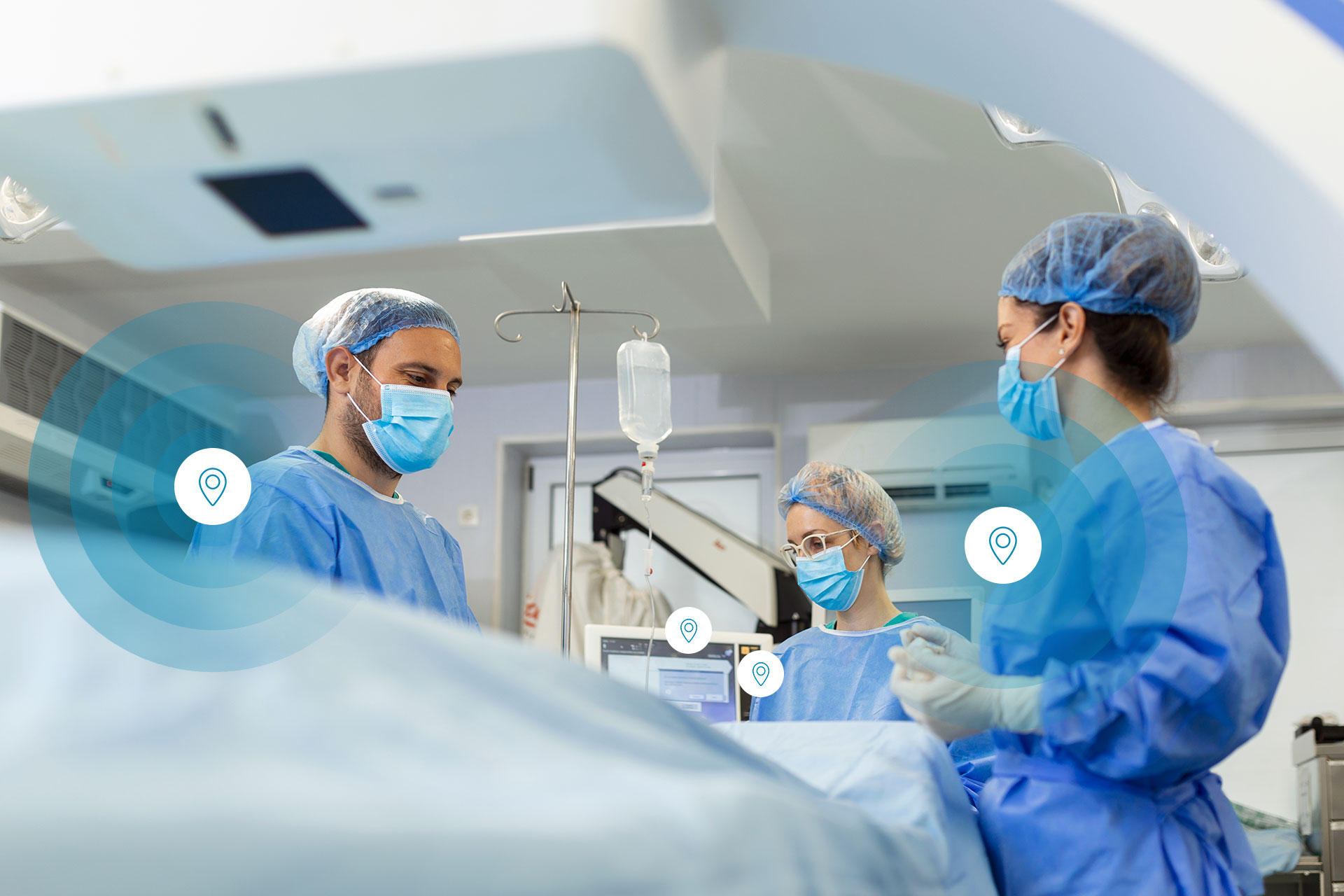RTLS in Hospitals | September 29, 2025
RTLS in Hospitals: Enhancing Patient Safety & Asset Management


Manny Pacheco
SVP, Strategy and Growth
In a hospital, time is everything. A delay of even a few minutes in locating equipment or reaching a patient can change outcomes. Slow processes don’t just hold teams back — they put patient safety at risk. That’s where Real-Time Location Systems (RTLS) deliver a critical advantage, providing instant visibility and speed that transform care.
What RTLS Brings to Healthcare
RTLS technology uses tags, sensors, and smart software to track the real-time location of patients, staff, and assets across a hospital campus. By providing accurate, location-based insights, RTLS eliminates guesswork and gives teams immediate clarity. Whether it’s finding the nearest infusion pump, ensuring a patient doesn’t leave a restricted area, or responding faster to emergencies, RTLS empowers hospitals to act with precision.
Protecting Patients with
Real-Time Insights
Patient safety is at the heart of RTLS. In units like pediatrics, behavioral health, or memory care, patients may be at risk of wandering into unsafe areas or leaving the facility entirely. RTLS automatically alerts staff when a patient crosses a geofenced boundary, allowing for immediate intervention. In infection control, RTLS data can trace patient and staff interactions to support contact tracing and minimize outbreaks. And in critical emergencies, location visibility reduces response times — ensuring patients receive the right care, exactly when they need it.
Smarter Asset Management
Hospitals often face a frustrating paradox: critical equipment is both in short supply and sitting unused in storage rooms. Staff may spend valuable time hunting down wheelchairs, ventilators, or IV pumps — or hoard equipment to avoid shortages. RTLS breaks this cycle by showing exactly where assets are located, how often they’re used, and when they need maintenance. This visibility not only reduces wasted time but also cuts unnecessary spending on replacements, helping hospitals stretch budgets further while improving efficiency.

Supporting Staff Safety and Workflow
Beyond patients and assets, RTLS enhances staff safety. Wearable duress buttons can instantly alert security teams, with exact location data ensuring the fastest possible response. Workflow data also helps managers understand staff distribution across departments, allowing better task allocation and reducing burnout from uneven workloads. When staff feel safer and supported, both morale and care quality rise.
Integration and Automation
RTLS is even more powerful when connected to other hospital systems. Integrating with nurse call platforms, electronic health records (EHR), and security systems allows hospitals to automate critical actions: locking doors during a patient elopement, notifying the right response teams instantly, or updating records with location data. This orchestration turns RTLS from a tracking tool into a central part of the hospital’s life-safety and operational strategy.
Balancing Challenges and ROI
As with any technology, RTLS adoption comes with challenges. Accuracy in complex hospital environments can require fine-tuning, and privacy protections must be carefully managed to meet HIPAA and other regulatory standards. But the return on investment is clear. Hospitals using RTLS consistently report faster response times, fewer lost assets, reduced replacement costs, and improved patient safety outcomes. The impact is both financial and human — better care delivered with greater efficiency.
The Future of RTLS in Hospitals
The role of RTLS in healthcare is only growing. Emerging innovations combine RTLS data with AI to predict workflow bottlenecks, optimize staff assignments, and anticipate patient needs before they arise. As systems become more integrated, RTLS will extend beyond safety into patient experience — ensuring hospitals are not only safe, but also smarter, faster, and more responsive.

981 E State Hwy 121
Unit C1
Lewisville, TX 75057
info@NovoTrax.com
Toll Free:1 844-TRAX-24-7
FAX:1 844-872-9247
